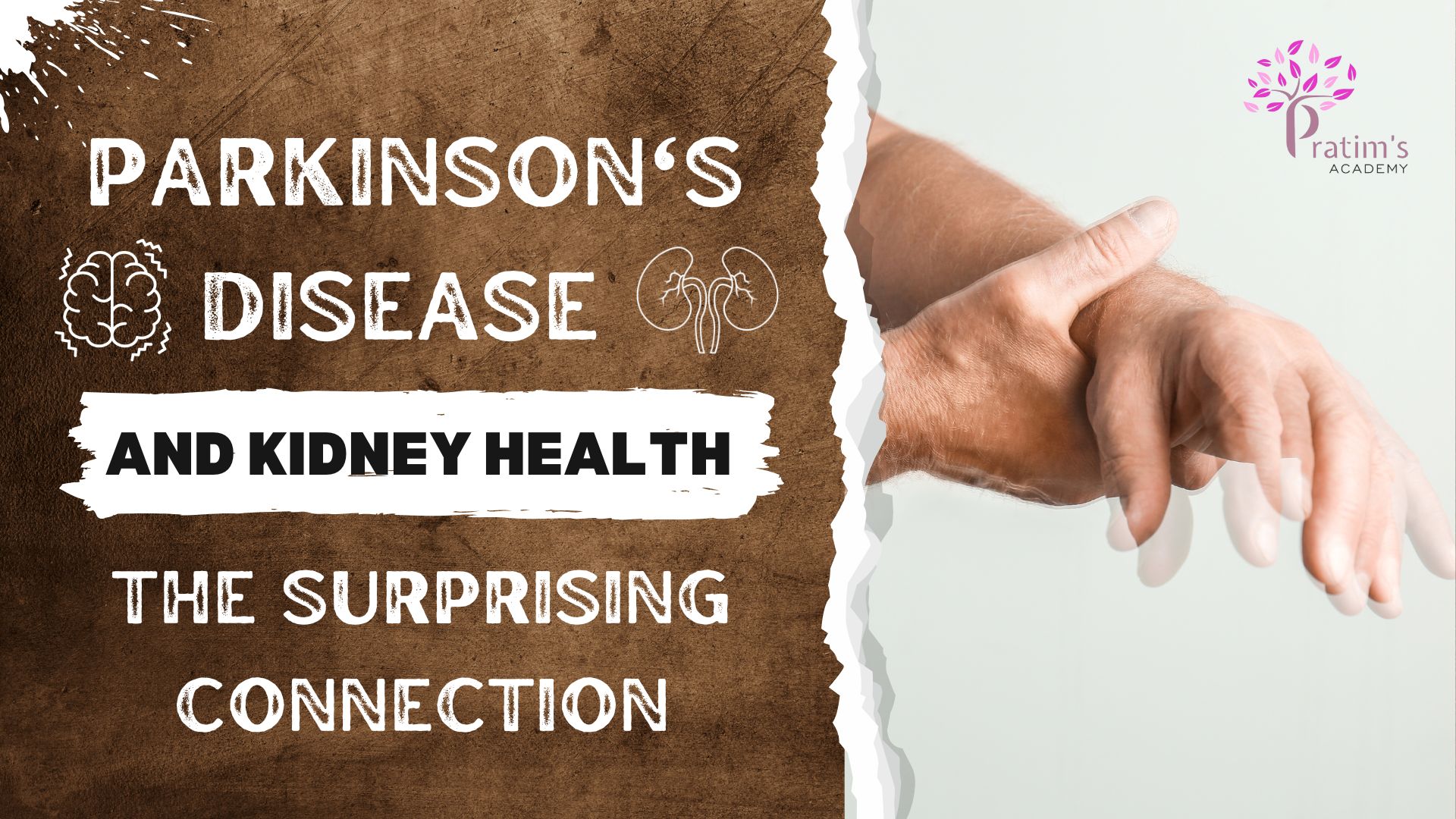
- 34
- 0
Parkinson’s Disease and Kidney Health- The Surprising Connection
Can Kidney Problems Be Linked to Parkinson’s Disease?

When we think of Parkinson’s disease (PD), we usually imagine a brain problem — shaky hands, slow movements, stiffness. That’s true, but new research suggests our kidneys might also play a surprising role in this condition.
What the Studies Found
A huge study in the UK followed around 4 lakh people for 14 years. It found that people with poor kidney function were more likely to develop Parkinson’s disease than those with healthy kidneys. The risk was especially high in people whose kidneys were working at less than 30% capacity (Peng et al., 2024).
Another exciting study, published in Nature Neuroscience, looked at both human tissue and mice. Researchers found clumps of a protein called alpha-synuclein (α-Syn) — known to damage brain cells in Parkinson’s — inside diseased kidneys. In mice, when the kidneys couldn’t clear this protein from the blood, it built up and actually traveled to the brain through nerves. When those kidney nerves were cut, the spread stopped (Yuan et al., 2025).
Other large studies from different countries also found that people with chronic kidney disease (CKD) had a higher chance of getting Parkinson’s soon after their kidney problems started.
How Could the Kidneys Affect the Brain?
Scientists think there could be a few reasons:
- Protein buildup: Healthy kidneys help filter harmful proteins like α-Syn from the blood. If kidneys are damaged, this protein can collect and possibly move to the brain.
- Toxins & inflammation: Kidney disease leads to harmful substances and inflammation in the body, which can damage both blood vessels and brain cells.
- Shared weak spots: Both kidneys and the brain have delicate blood vessels easily harmed by high blood pressure or diabetes.
Could Urine Tests Help Detect Parkinson’s Early?

Researchers are also studying urine to look for early warning signs of Parkinson’s — such as specific chemicals or α-Syn protein fragments. In the future, a simple urine test could help identify people at risk, especially those with kidney problems (Dhiman et al., 2025).
What This Means for Us
- Taking care of your kidneys may also help protect your brain.
- People with kidney disease should be extra alert for symptoms like hand tremors, stiffness, or slowed movements.
- This discovery could open new ways to treat Parkinson’s by removing harmful proteins from the body — not just targeting the brain.
A Note of Caution
Your kidney health and brain health are connected. Protecting your kidneys through regular check-ups, controlling blood pressure and sugar, staying hydrated, and eating a balanced diet may also help lower your risk of Parkinson’s disease. A healthy kidney is a step toward a healthy mind.
Join our MUKTI team in engaging regular activities:
References
- Yuan, X., et al. (2025). Propagation of pathologic α-synuclein from kidney to brain may contribute to Parkinson’s disease. Nature Neuroscience, 28(3), 577–588. https://doi.org/10.1038/s41593-024-01866-2
- Peng, H., et al. (2024). Association between kidney function and Parkinson’s disease risk: a prospective study from the UK Biobank. BMC Public Health, 24, 2225. https://doi.org/10.1186/s12889-024-19709-x
- [Author group]. (2024). Mid- and late-life chronic kidney disease is associated with Parkinson’s disease. PMC article (Korean cohort).
- Dhiman, N. R., et al. (2025). Urinary based biomarkers identification in Parkinson’s disease: a systematic review. Frontiers in Bioinformatics, 5, 1513790. https://doi.org/10.3389/fbinf.2025.1513790
Comment
Check Your EGFR
***We Promise, no spam!







